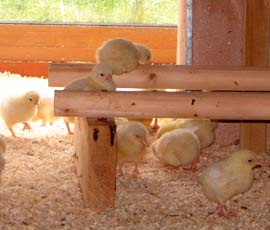‘Part-organic’ pullet sourcing to continue

Organic egg producers will continue to be able to source pullets from conventional rearing facilities and “convert” them to organic until 2012 after the EU gave producers a derogation, following the failure to establish a complete organic standard.
Certification authority Organic Farmers & Growers (OF&G) has welcomed the news but said the lack of consensus on pullet-rearing standards still remains an issue for farmers.
“The bad news is we still don’t have a standard for organic pullets, and we still don’t have a deadline for when that will happen which the sector can work to,” said Richard Jacobs, chief executive of OF&G.
“To produce a fully organic pullet, rearers may have to make outdoor space available, amongst other requirements, and that means investment and a long lead-in to allow for planning permission and other considerations.”
“The good news at least is that we won’t be left without a supply of pullets for organic laying units come January next year. Where organic chicks can’t be sourced, producers will be able to continue with the part-organic option and that will allow for continuity of supply for the time being.”
Farmers who want to continue to use part-organic pullets, reared to interim veterinary and feed standards, require a derogation from OF&G for their use. They may also take conventionally-reared chicks onto their units at no more than three days of age and rear them to organic standards.
DEFRA has told OF&G it would expect the current arrangements to continue for at least 12 months past the December 2011 deadline.
“What we need to see now is an agreed organic pullet-rearing standard to be introduced as soon as possible and, once we reach that point, there needs to be at least an 18-month transition period to allow the rearers to make and carry out their plans to meet the market need,” said Mr Jacobs.
